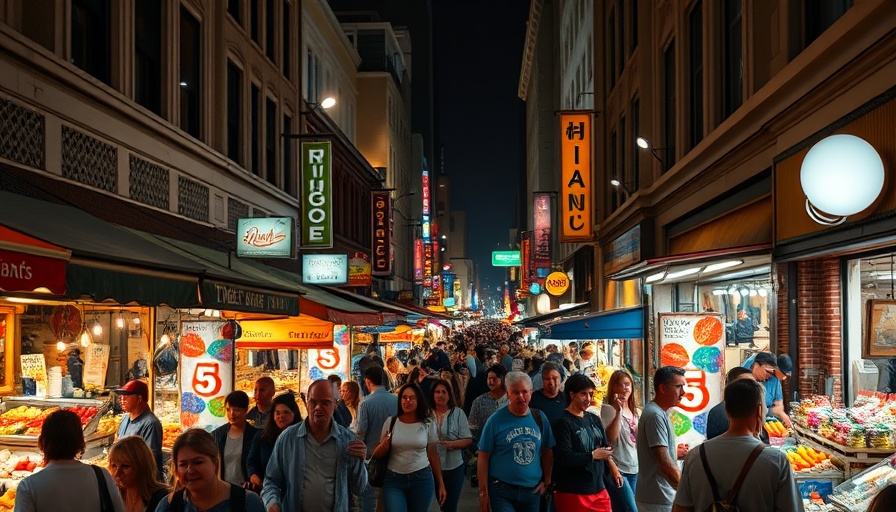
A Rising Issue: San Francisco's Unpermitted Street Vending
As the pulse of San Francisco continues to beat with its vibrant street culture, a growing tension surrounds the practice of street vending, particularly unpermitted vending. Recent legislative moves by Senator Scott Wiener aim to give the San Francisco Police Department (SFPD) enhanced powers to address this issue more effectively. This article delves into the repercussions of new proposed legislation that may reshape the dynamics of local commerce and public safety.
Understanding the Legislative Push
Introduced in February, Senate Bill 276 seeks to empower the SFPD to cite unpermitted vendors selling items deemed frequently stolen goods—an effort to curb the chaos surrounding illegal street vending that many residents find concerning. Supporters argue that existing laws, particularly the 2018 law that decriminalized street vending, hinder effective policing of these unsanctioned transactions. Senator Wiener remarks on the community's vocal support for legislative change: "It’s so powerful to see San Francisco residents speak out about how this issue affects them and advocate for change," indicating a clear disconnect between policy and the residents' needs.
Cascading Effects of the Legislation
The proposed bill is not merely about issuing citations; it's part of a larger narrative involving public safety, local businesses, and community sentiment. Currently, enforcement relies on Public Works, which has faced threats during their attempts to regulate street vending. SB 276's tailored approach, specifically exempting food vendors, highlights a growing recognition of the need to balance enforcement with economic opportunities for those trying to earn a living through legitimate avenues.
Community Concerns and Local Perspectives
Residents and local business owners have voiced strong concerns over the existing conditions at hotspots such as the 16th Street BART Plaza, echoing a call for legislative action. Despite an apparent crackdown on illegal activities, many assert that the situation remains chaotic, prompting some to question the effectiveness of mere policing without addressing the underlying socio-economic factors that drive individuals toward street vending. This sentiment resonates through mission reports by local news outlets, emphasizing the need for measured, compassionate responses rather than heavy-handed enforcement.
Potential for Future Developments in Street Commerce
As the bill proceeds to the Appropriations Committee, it opens windows for further community engagement and public forums in discussing local commerce regulations. The Board of Supervisors will be tasked with identifying commonly stolen goods, an endeavor that could redefine the landscape of policing and public interaction in San Francisco. Stakeholders, including community advocates, law officials, and ordinary citizens, have a unique opportunity to contribute their insights and experiences to refine the legislative response.
A Broader Implication of City Politics
The proposed authority granted to the SFPD extends beyond street vending; it speaks volumes about the prioritization of public safety in city politics. The discourse around SB 276 reveals the challenges of curbing illegal street vending while accommodating the economic needs of individuals turned entrepreneurs. Advocates stress the importance of amending the existing laws in such a way that they specifically target the chaos brought about by illegal activities without infringing upon the rights of legitimate vendors.
Public Involvement: A Critical Component
The legislative journey of Bill 276 underscores the necessity for public involvement in local governance. As the situation continues to evolve, community forums that invite diverse perspectives can enhance decision-making processes, ensuring that policies enacted genuinely reflect and serve the needs of the people. As residents face the realities of urban commotion, their engagement becomes pivotal in shaping a safer, more viable future.
The Path Ahead: How to Get Involved
As this bill progresses, residents and local stakeholders have ample opportunities to voice their thoughts. Engaging with city council meetings, participating in community discussions, and making informed decisions about local business interactions can contribute to a more harmonious urban experience. It's essential for all voices to be heard as San Francisco navigates these challenging waters.
 Add Row
Add Row  Add
Add 




 Add Row
Add Row  Add
Add 

Write A Comment